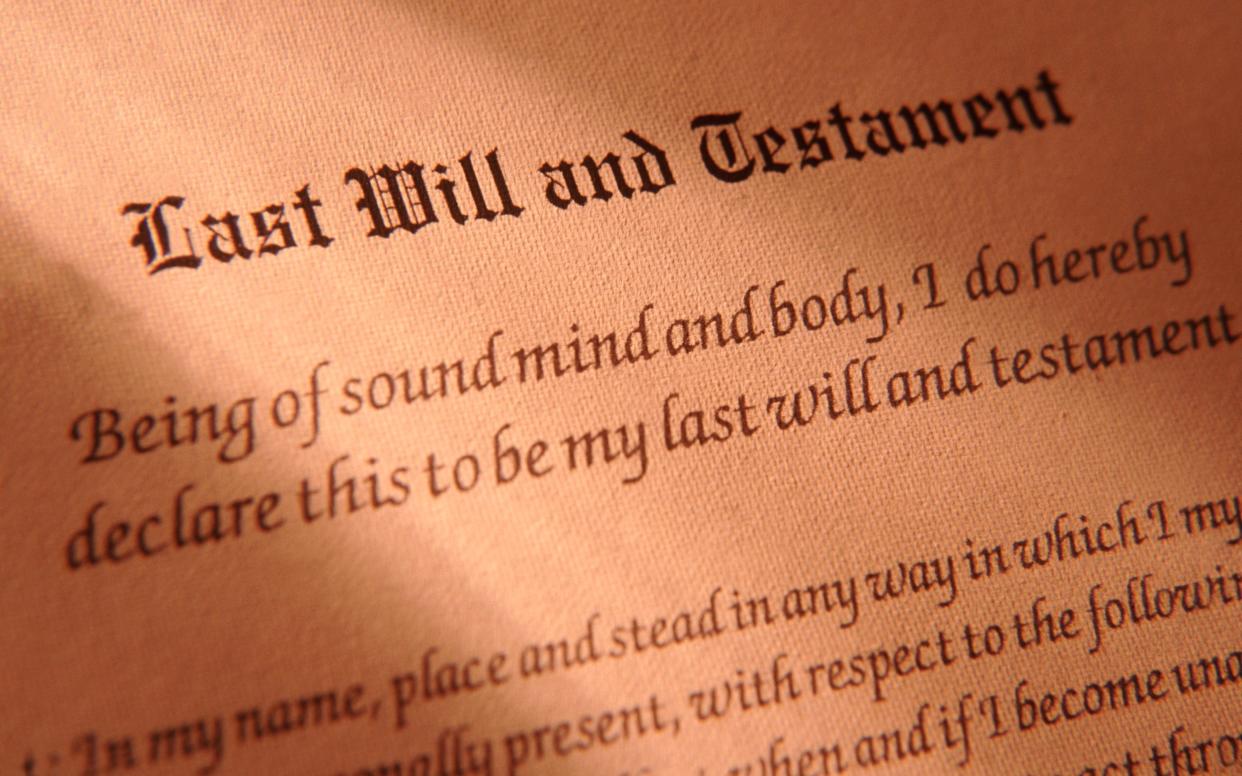Millions of wills dating back to 1800s could be destroyed in act of ‘deleting history’

Historians have accused the Government of planning to “delete history” by digitising and then destroying millions of people’s wills.
The Ministry of Justice (MoJ) is proposing to set a 25-year time limit on the retention of paper wills after which all of them except those of famous people would be destroyed.
The MoJ maintains the digitisation will give historians and families quicker access to historical wills – potentially within hours rather than weeks – and save taxpayers on the £4.5 million a year cost of storing 110 million documents.
But the plan, which will require legislation in Parliament to enact it, has provoked uproar from historians, genealogists and archivists who fear the permanent loss of historical documents chronicling life and death in Britain back to the 1850s.
They say the lengthy and tricky process of scanning wills is not foolproof, which will mean pages of historical documents could be missed by those tasked with the decade-long task of digitising them and, as a result, lost forever.
They also warn that the digital technology itself could be compromised as has happened with the British Library where a cyber attack has denied access to documents in its archives.
“Digitisation and then destruction of originals leaves you with no safety net if your digital copies are compromised for whatever reason,” said Caroline Shenton, archivist, historian and author of The Day Parliament Burned Down.
The MoJ, however, maintains that the process will preserve documents currently stored in Birmingham in warehouses run by a private contractor. Although safely held, they are not kept in a sealed environment, which means the paper is still vulnerable to natural deterioration.
‘Extremely detailed’
It says huge advances in the technology mean that digital copies of original documents can be “extremely detailed” and “all relevant marks” such as signatures, margin notes and corrections can be retained on scans.
However, MoJ sources acknowledged the consultation on the plans was not set in stone and could see concessions on the timescale and, most controversially, the criteria for who will be defined as “famous” and therefore have their wills retained in paper form.
Melanie Backe-Hansen, co-author with historian David Olusoga of A House through Time, an acclaimed book and television series, said digitisation was fantastic in speeding up access to wills, but “the act of destroying the originals is very upsetting”.
She questioned whether, in 20 years the technology would mean digitised documents could still be read, citing how the move to microfiche documents 50 years ago had left them now “largely illegible”.
Ms Backe-Hansen described the idea of defining who was famous as offensive. She said: “Who knows who is going to be famous in the future?”
“It is far more valuable to have the wills of ordinary people because there are so few other documentary sources for them. Wills can provide enormous amounts of information not only for family history, but for public and social history.”
‘Wholesale destruction’
Wills have been kept continuously since the Court of Probate Act in 1857, with those predating it held, if at all, by the National Archives. Among the 110 million documents held in Birmingham are the wills of Charles Darwin, Charles Dickens and Diana, Princess of Wales.
Dave Annal, one of Britain’s leading family historians, has produced a blog in which he urges fellow experts and supporters to reject “any threat to the wholesale destruction of these documents”.
He doubted the digitising process would guarantee staff would capture 100 per cent of the wills because of the risk of accidentally missing out a batch of documents, forgetting to turn over a page or copy the reverse side of it.
“If you cannot guarantee this, there is a real danger they will destroy irreplaceable documents and once they are destroyed, that’s it. They are gone forever.”

